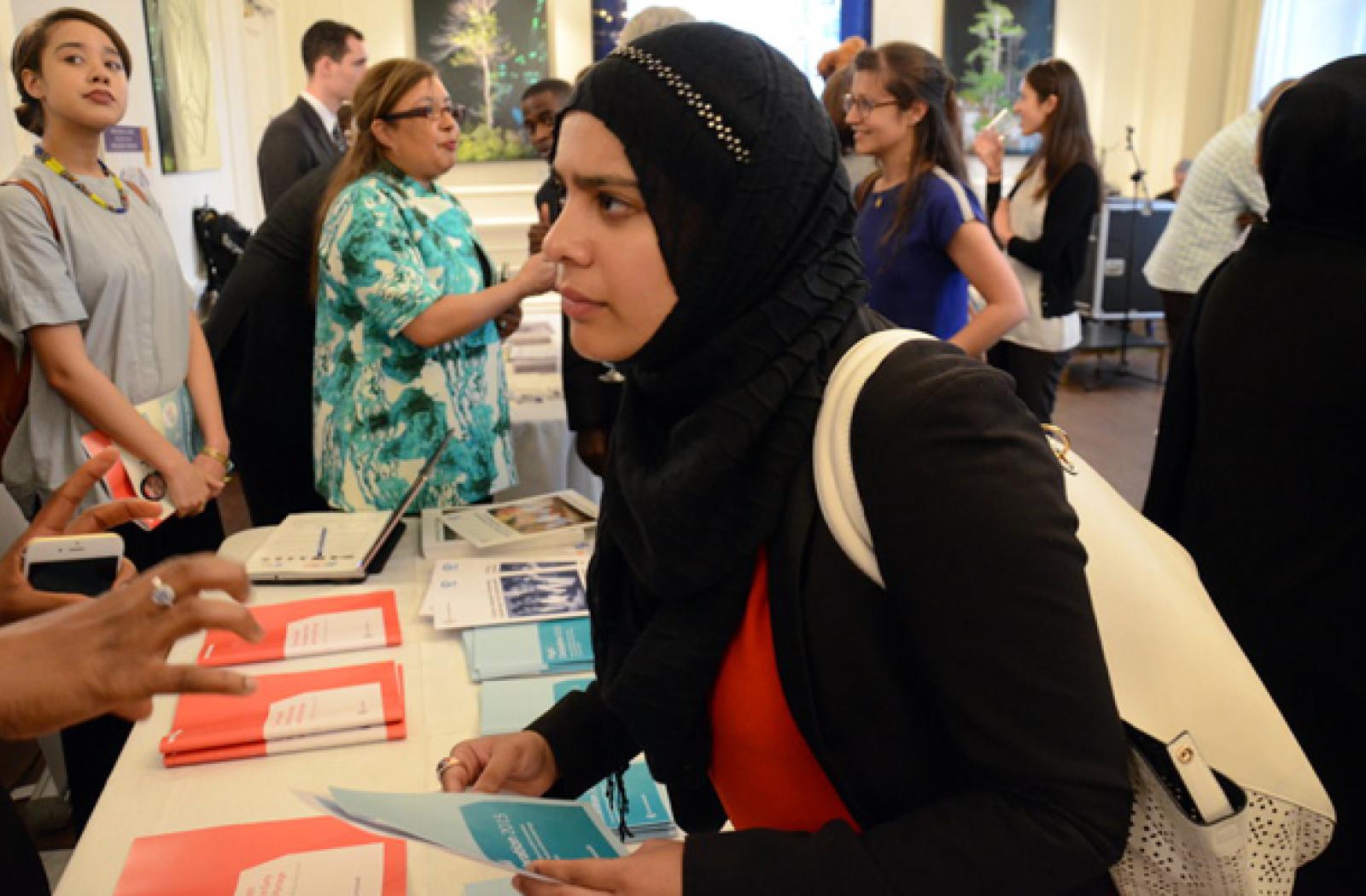Commonwealth declaration to end child marriage

“Until now, we’ve had no linkages. Each country has been trying to address the issue of child marriage independently. The Commonwealth is trying to introduce these linkages through the Kigali Declaration”, said Chief Kyungu from Malawi who participated in a working group to end child, early and forced marriage.
The Commonwealth Human Rights Unit invited human rights experts from Africa and Asia to attend a working session at Marlborough House in London from 15 - 22 July 2015. Over the course of seven days, participants drew up the next phase of action in ongoing efforts to prevent and eliminate this practice.
The session is part of a wider programme of work the Commonwealth has undertaken to mobilise a variety of different actors, ranging from national human rights institutions (NHRIs) to grassroots campaigners, to put an end to child marriage. To date, one of the key outcomes has been the Kigali Declaration.
Paramount Chief Kyungu, who has been working closely with the Malawi Human Rights Commission in engaging religious leaders and chiefs, described the Declaration as an important tool to galvanise action on the ground.
He said: “Each point of the Declaration emphasises the need to work as a team across the Commonwealth to end child marriage.”
Following mandates issued in 2011 and 2013 by Heads of Government, the Human Rights Unit has been progressing specific actions to tackle the issue of child marriage. In 2013, the
Dr Wanjala Wafula, Founder and Executive Director of Coexist Kenya, who also attended the working session, underscored the importance of forging strategic partnerships to safeguard women and girls.
He said: “To increase efforts to end child marriage, the Commonwealth is working with many different partners, such as traditional structures and parliamentarians. There are cases in Kenya and Malawi where we see parliamentarians driving forward changes in legislation to protect the rights of the child. We need to see more collaboration in all sectors to stop this exploitation and abuse.”
Dr Wafula added: “In 2015, we are struggling to come to the end of the Millennium Development Goals, many of which were unmet. Yet, we could have made better progress if we had had a population of girls who went to school and were aware of their rights. Child marriage alone robs countries, especially those in the developing world, of over 50 per cent of their potential.”
The Commonwealth Secretariat presented the Declaration at their display at the Girl Summit Anniversary, which took place at the High Commission of Canada on 22 July 2015. The event, organised to celebrate international efforts over the past year to support girls, provided an opportunity for the Commonwealth to share its work in this area with important partners.
Rajan Burlakoti summed up the working session as a “vital, ongoing dialogue” to exchange best practice and look at ways to replicate successful interventions in other countries. Mr Burlakoti, a child protection officer with the South Asian Initiative to End Violence Against Children (SAIEVAC), explained that legislative reform is essential to ensure child marriage is outlawed in all countries.
He said: “One thing to begin with is that we need to make sure our laws are harmonised with the international commitments we have made, such as commitments to uphold the rights of the child.”
Mr Burlakoti added: “We have come together for this working session to share our experiences. Things that have worked in one country can be repeated in another country. The Kigali Declaration has now given us a framework to design effective interventions to end child marriage.”
Putting a stop to child marriage in the Commonwealth
